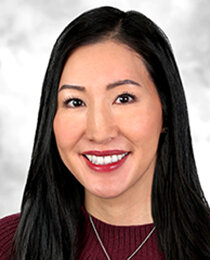A Closer Look at Eye Exams: Why You Need Them and What to Expect

Even if you are seeing clearly, getting regular eye exams is a crucial part of maintaining your overall health. An eye exam is a powerful tool—not only can it detect eye disease, but hundreds of systemic and chronic diseases can be identified as well. Early warning signs of hypertension, diabetes, autoimmune disease, infections and even cancer can be discovered with the eye exam alone.
During an eye exam, these health conditions can be identified in their early stages, allowing for more effective treatment with improved outcomes.
What to expect at an eye exam
Annual eye exams usually consist of the following individual tests:
- preliminary screenings for pupil response, peripheral vision, color vision and eye pressure
- visual acuity to assess distance and near vision
- refraction tests use special lenses to determine your need for glasses
- a dilated exam uses dilating eyedrops to temporarily enlarge your pupil so the internal structures of your eye may be viewed
- highly technical imaging to photograph and examine all the structures of the eye and better evaluate your eye health
Should I see an optometrist or ophthalmologist?
Both ophthalmologists and optometrists are considered eye doctors, and often work together to provide comprehensive eye care.
An optometrist is a doctor who completed optometry school and can provide routine eye care, including glasses and contact prescriptions. They can also diagnose and treat many common eye diseases.
An ophthalmologist is a medical doctor who completed medical school and ophthalmology residency. Ophthalmologists can provide eye exams and treat simple or complex eye conditions with medications, procedures or surgery. Ophthalmologists can also be sub-specialized in areas which include glaucoma, retinal disease, uveitis, oculoplastics, pediatric ophthalmology, neuro-ophthalmology, or ocular oncology.
When should I get an eye exam?
Regularly scheduled eye exams will ensure optimal eye health, but "regular" can mean a variety of time frames depending on age, general health, and risk factors. Your eye care provider will determine how often you should get an eye exam to keep you healthy and in the clear!
Need to schedule an eye exam? The eye specialists at Brown University Health Ophthalmology Services can help! Call us at 401-444-6551.

About the Author:
Julie Kumata Boehm, MD
Dr. Julie Boehm is a board-certified ophthalmologist with the Brown Health Medical Group.

Be Well Newsletter
Find a Doctor

The right provider is in our network
Search more than 1,200 providers in our network.



